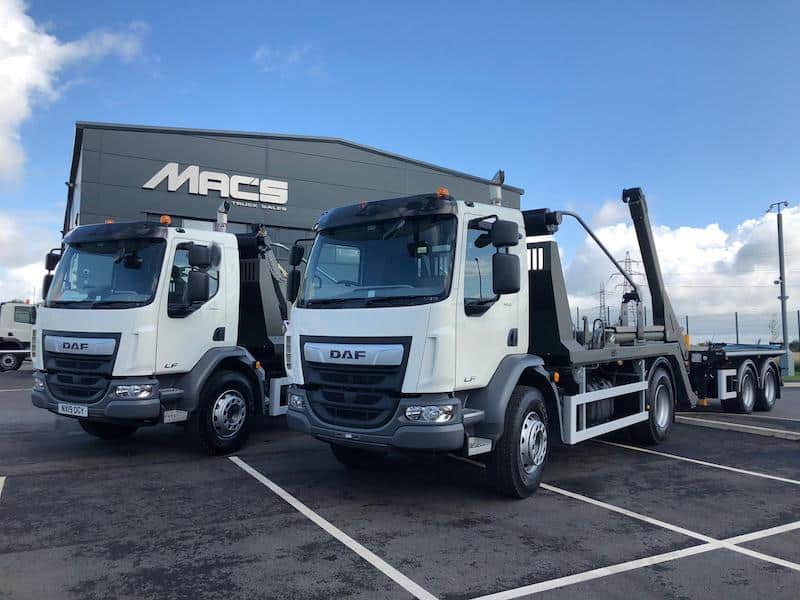Summary
- The delay to Brexit has caused more disruption to truck purchasing
- A post-Brexit 16% tariff on HGV’s & components will raise prices of new trucks
- To compensate, truck dealers are also likely to raise used truck prices
- Combined with increasing pressure to comply with efficiency standards (plus new initiatives such as London’s ULEZ), more companies are turning to truck rental
- Renting makes monthly outgoings more predictable and removes the headache of ongoing management, servicing and taxing.
Brexit has been delayed. Again. Which means the uncertainty around one of the most heavily-impacted industries – haulage & automotive – is set to continue.
This is particularly bad news for the industry. Why? Consider the number of components within any given truck that has been manufactured in the UK. Over 50% of those components are sourced from the EU. Of course, that figure is likely to substantially rise for trucks manufactured outside of the UK too.
This perfectly demonstrates how interlinked the automotive & haulage industry is with supply chains across Europe. Uncertainty around how the WTO is going to impose tariffs on the import/export of trucks and components has delayed purchasing decisions, as transport & fleet managers are unsure of the best way to fund their new trucks.
What is this tariff?
The Temporary Tariff Regime would be used in the event of a no-deal Brexit, and the Government have stated that 88% of imports will be tariff-free. Unfortunately, the tariff will apply to HGV’s and components.
The rate of this tariff was set at 22%, but after some convincing by the Road Haulage Association, has been reduced to 16%. To put this into context, RHA chief executive Richard Burnett said:
“With the average price of a tractor unit with an engine rating of Euro 6 starting at around £85,000, the prospect of paying over £100,000 for a new truck will, for many, make new vehicle acquisition almost impossible,” he remarked.
“This is a ludicrous situation. UK hauliers, particularly those already at a loss as regards future border crossing processes, will now be faced with massive, additional financial burdens to add to their worries.
“For those who can afford these excessive tariffs, they will have no alternative but to increase their rates by a substantial amount. For those unable to pass the additional cost on, there’s a real risk that Brexit will be the final straw.”
The price of new AND used trucks will increase
Richard Burnett highlights the need for businesses to be using trucks manufactured to the latest emissions standards, Euro 6.
Commercial Motor reported that there are a significant number of businesses with Euro 4 & 5 rated trucks that are holding off on purchasing a Euro 6 truck.
Heading into 2020, the price of these is set to rise, which would massively impact these businesses, particularly as London will introduce the ULEZ, designed to clean up the capital’s air with heavy fines imposed for drivers without Euro 6 engines.
This is likely to force businesses owners to turn to used trucks. However, as demand will likely fall initially for new trucks, this reduction in revenue will be offset by increasing the price of used trucks too (Commercial Motor).
Of course, used Euro 6 trucks will remain cheaper than their new alternatives, but the price gap will be reduced by dealers in an effort to make new trucks look more enticing.
What is the alternative?
Regardless of whether a business is looking for a new or used truck, there’s likely to be an element of credit involved in the purchase, resulting in monthly payments or a set repayment date.
Selena McDade-Smith, from Mac’s Truck Rental (sister-company of Macs Trucks Sales), explained that many businesses have utilised the company’s contract hire service because of the reduction in cost and flexibility in contract length:
“We often have to explain why contract hire benefits our potential customers, and the reason is that their monthly payments only cover the depreciation of the truck over the time they need it. Which, of course, results in much lower prices.
We’ve also seen more and more customers converting from outright purchases to rental because of the demands on efficiency. While Euro 6 has been in force for a while now, with DAF and other manufacturers developing electric vehicles, we’re expecting further efficiency regulations to come into force in the not-too-distant future, which naturally disrupts the industry.
As the average rental customer has their truck between 2-3 years, compared to those who own a truck outright where this figure doubles to 6-7 years, renting offers businesses the option of adhering to the latest efficiency standards, therefore benefiting from any incentives or cost reductions from the Government.
It certainly feels like contract hire and rental is the logical choice, particularly in this period of uncertainty”.
For more information on truck rental and contract hire, click through to our trucks page, or get in touch.
